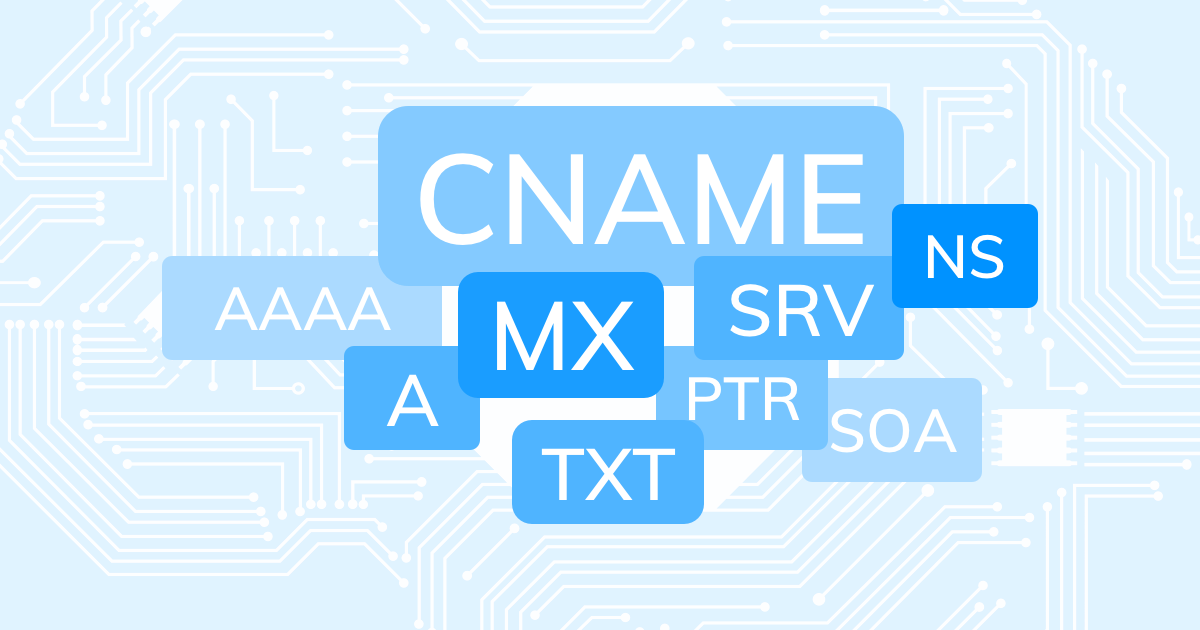What is a DNS Record? Types of DNS Records
When navigating the vast world of the internet, DNS (Domain Name System) plays a silent yet essential role behind every website visit, email exchange, and online service. This blog post provides a comprehensive overview of DNS, its advantages, and the most commonly used DNS record types that form the foundation of internet communication.
What is DNS?
DNS, or Domain Name System, is the phonebook of the Internet. Every device connected to the Internet has an IP address—a numerical label used to identify and locate that device. Since IP addresses like 192.168.0.1 are difficult to remember, DNS maps easy-to-read domain names (like google.com) to their corresponding IP addresses. This system allows users to access websites and services using memorable domain names instead of complex numerical strings.
For example, when you type www.wikipedia.org DNS servers translate the domain name into the IP address where Wikipedia’s web server is hosted. Without DNS, the internet would be significantly harder to navigate.
Why is DNS Important?
DNS offers several key benefits:
- User-Friendly Navigation: Users can access websites using readable names instead of numeric IP addresses.
- Scalability: DNS can handle billions of domain names and requests without performance issues.
- Load Balancing: Some DNS setups allow multiple IPs to be mapped to a single domain to manage traffic efficiently.
- Security Features: DNS can be used with firewalls and DNSSEC (DNS Security Extensions) for secure browsing and protection against spoofing.
How Does DNS Work?
The DNS process involves several steps:
- Query Initiation: You type a website’s domain name into your browser.
- Recursive Resolver Contacted: Your request is sent to a recursive DNS resolver, often operated by your ISP.
- Root Server Contacted: The resolver asks a root DNS server where to find the top-level domain (TLD) server.
- TLD Server Response: The TLD server (like
.com,.org) points the resolver to the authoritative DNS server for the specific domain. - Authoritative Server Response: The resolver contacts the authoritative server, which returns the correct IP address.
- Connection Established: The browser connects to the IP address and loads the website.
This process happens in milliseconds and ensures users are routed to the correct server hosting the requested content.
Common Types of DNS Records
DNS records are instructions stored in authoritative DNS servers. These records define how domain names are handled, including which IP they point to, how emails are routed, and more. There are over 30 DNS record types, but here are the most commonly used:
1. A Record (Address Record)
- Purpose: Maps a domain name to an IPv4 address.
- Example:
example.com -> 93.184.216.34
2. AAAA Record
- Purpose: Maps a domain name to an IPv6 address.
- Example:
example.com -> 2606:2800:220:1:248:1893:25c8:1946
3. CNAME Record (Canonical Name)
- Purpose: Creates an alias for a domain. Often used for subdomains.
- Example:
blog.example.com -> www.example.com
4. MX Record (Mail Exchange)
- Purpose: Specifies mail servers responsible for receiving email.
- Example:
10 mail.example.com
5. TXT Record (Text Record)
- Purpose: Used to store text-based information like SPF or domain ownership verification.
- Example:
v=spf1 include:_spf.google.com ~all
6. NS Record (Name Server)
- Purpose: Identifies the DNS servers authoritative for the domain.
- Example:
ns1.hostingprovider.com
7. PTR Record (Pointer Record)
- Purpose: Maps an IP address back to a domain name (reverse DNS lookup).
- Used in: Email spam filtering, logging, and diagnostics.
8. LOC Record (Location Record)
- Purpose: Indicates the physical location of a domain in latitude and longitude.
- Usage: Rare, but helpful in geolocation services.
9. DNAME Record
- Purpose: Redirects an entire subtree of domain names to another domain.
- Difference with CNAME: Unlike CNAME, which only redirects a single name, DNAME covers all subdomains.
What is a DNS Zone File?
A DNS zone file is a plain text file that stores mappings between domain names, IP addresses, and other DNS records. It is managed on authoritative name servers and includes:
- SOA Record: Start of Authority record provides information about the domain and zone.
- Multiple A, MX, and CNAME records: Each maps a specific aspect of the domain to the appropriate servers.
Like a phone directory that stores names with corresponding numbers, the zone file acts as a reference point for resolving DNS queries.
Cloud DNS: Scalability and Reliability
Many organizations now use Cloud DNS services, which provide a highly scalable, globally distributed DNS infrastructure. Benefits of cloud DNS include:
- High Availability: Redundant global servers ensure uptime.
- Faster Response Times: DNS queries are resolved from the nearest server location.
- Enhanced Security: Protection against DDoS attacks and DNS spoofing.
- Easy Management: User-friendly interfaces and APIs for record updates.
Providers like Google Cloud DNS, Amazon Route 53, and Cloudflare DNS offer enterprise-grade DNS solutions.
Uses of DNS Records in Real Life
DNS records play a critical role in enabling many daily internet functions:
- Website Access: A and AAAA records resolve domain names to IP addresses.
- Email Routing: MX records ensure that emails reach the correct mail server.
- Verification: TXT records are used by platforms like Google or Microsoft to verify domain ownership.
- Traffic Control: CNAME records can redirect traffic during migrations or for CDN services.
- Security Compliance: PTR and SPF records help authenticate the source of email messages.
Conclusion
DNS is the backbone of the Internet’s addressing system. Without it, users would have to remember strings of numbers to access their favorite sites or send emails. DNS records are essential for smooth online communication, mapping domain names to IP addresses, directing emails, and verifying domain ownership.
Understanding the types and uses of DNS records can help web admins, developers, and IT professionals maintain and optimize their internet presence. Whether managing a small blog or running a large-scale cloud infrastructure, DNS is one of the most critical systems to understand and configure correctly.

